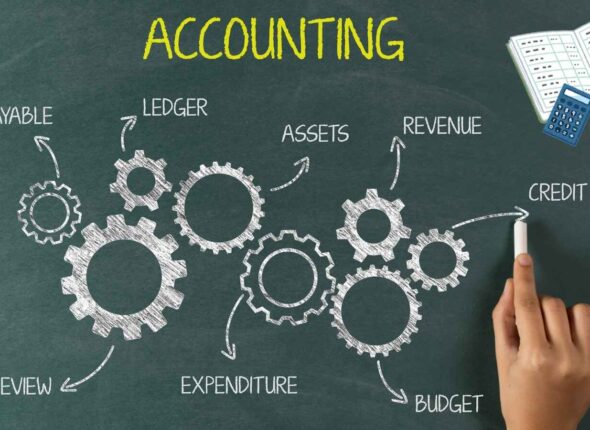Course Description
The Human Resource Management (HRM) syllabus for undergraduate or postgraduate courses (such as BBA, MBA, or specialized diplomas) provides an in-depth understanding of managing people within organizations. The syllabus typically covers topics related to recruitment, training, development, performance appraisal, labor laws, and organizational behavior. Here is an overview of the key topics generally included in an HRM syllabus:
What You’ll Learn?
- Fundamentals of Human Resource Management
Introduction to HRM:
- Meaning, nature, and scope of HRM.
- Objectives, functions, and roles of HR managers.
- Evolution of HRM, difference between Personnel Management and HRM.
- HR as a strategic business partner.
HRM Models and Theories:
- Hard and soft HRM models.
- Theories of motivation: Maslow, Herzberg, McGregor’s Theory X and Y.
- Recruitment and Selection
Human Resource Planning (HRP):
- Importance and process of HRP.
- Methods for demand and supply forecasting in HR.
Recruitment:
- Sources of recruitment: Internal vs. external recruitment.
- Job analysis, job description, and job specification.
Selection:
- Selection process: Screening, testing, interviews, reference checks, and selection decision.
- Methods of selection: Structured vs. unstructured interviews, psychometric testing, assessment centers.
- Legal and ethical aspects of recruitment and selection.
- Training and Development
Training:
- Importance and objectives of employee training.
- Types of training: On-the-job, off-the-job, simulation, role-playing, etc.
- Training methods: Classroom lectures, e-learning, case study method.
Employee Development:
- Difference between training and development.
- Career development and planning.
- Management development programs (MDP).
Evaluation of Training Programs:
- Training needs analysis.
- Kirkpatrick’s model of training evaluation.
- Performance Management and Appraisal
Performance Appraisal:
- Purpose and process of performance appraisal.
- Techniques of appraisal: Rating scales, 360-degree feedback, management by objectives (MBO).
- Challenges and biases in performance appraisal.
Performance Management:
- Setting performance standards and expectations.
- Continuous feedback, coaching, and counseling.
- Performance improvement plans (PIPs).
- Compensation and Benefits
Job Evaluation:
- Methods of job evaluation: Ranking, classification, point factor method.
- Internal vs. external equity in compensation.
Compensation Management:
- Components of compensation: Basic pay, allowances, incentives, bonuses, commissions.
- Pay for performance: Merit-based pay, skill-based pay, competency-based compensation.
Benefits and Perks:
- Types of employee benefits: Health insurance, retirement plans, paid leave, employee stock options (ESOP).
- Fringe benefits and perquisites.
- Labor Relations and Industrial Relations
Introduction to Industrial Relations (IR):
- Meaning and importance of IR.
- Role of trade unions, employers’ associations, and government in IR.
Collective Bargaining:
- Process, importance, and types of collective bargaining.
- Negotiation strategies and conflict resolution.
Grievance Handling and Disciplinary Procedures:
- Causes of grievances and grievance redressal mechanism.
- Disciplinary procedures: Principles and types of discipline.
- Organizational Behavior (OB)
Introduction to Organizational Behavior:
- Meaning and significance of OB.
- The relationship between HRM and OB.
Individual Behavior in Organizations:
- Personality, perception, learning, attitudes, and motivation.
- Motivation theories: Maslow’s Hierarchy of Needs, Herzberg’s Two-Factor Theory, Vroom’s Expectancy Theory.
Group Behavior:
- Group dynamics, team building, and leadership.
- Leadership theories: Trait theory, behavioral theory, contingency theory.
Organizational Culture and Change:
- Types of organizational cultures.
- Managing change and resistance to change.
- Human Resource Development (HRD)
Introduction to HRD:
- Difference between HRM and HRD.
- Objectives and functions of HRD.
Career Planning and Development:
- Career stages and career paths.
- Succession planning and talent management.
Employee Engagement and Retention:
- Employee engagement strategies.
- Causes of employee turnover and retention strategies.
- HR Metrics and Analytics
Introduction to HR Metrics:
- Measuring HR effectiveness using KPIs (Key Performance Indicators).
- HR dashboards and reports.
HR Analytics:
- Use of data in making HR decisions: Predictive analytics, workforce analytics.
- Tools for HR analytics: Excel, HR software, and other technologies.
Data-Driven Decision Making:
- Impact of big data on HR.
- Trends in HR analytics and future of data-driven HR.
- Strategic Human Resource Management (SHRM)
Strategic Role of HRM:
- Linking HR strategy with organizational goals.
- SHRM models: Best fit and best practice approaches.
HR in a Global Context:
- Global HR strategies, managing expatriates, cross-cultural management.
HR in Mergers and Acquisitions:
- Role of HR in mergers, acquisitions, and restructuring.
- Integration of workforce and cultures in post-M&A situations.
- HR Laws and Legal Compliance
Labor Laws:
- Overview of key labor laws: Minimum Wages Act, Industrial Disputes Act, Factories Act, Payment of Wages Act, etc.
Employment Laws:
- Equal Employment Opportunity (EEO), anti-discrimination laws.
- Laws related to gender equality, sexual harassment at the workplace (POSH Act).
Health and Safety Regulations:
- Occupational health and safety standards.
- Role of HR in ensuring compliance with safety regulations.
- Emerging Trends in HRM
Technology in HRM:
- Role of HR software, HRIS (Human Resource Information Systems), AI in recruitment and employee management.
Gig Economy and Flexible Work Arrangements:
- Managing freelancers, remote workers, and the challenges of a gig workforce.
Diversity and Inclusion (D&I):
- Importance of D&I in the workplace.
- Strategies to foster an inclusive culture.
Corporate Social Responsibility (CSR) and HR:
- Role of HR in driving CSR initiatives.
- Employee volunteer programs, ethical leadership.
Project Work and Case Studies
- Practical projects on topics such as recruitment, employee engagement, compensation strategies, etc.
- Case studies on performance management, HR challenges in mergers, managing industrial relations, etc.
- Internship or fieldwork experience in HR departments.










